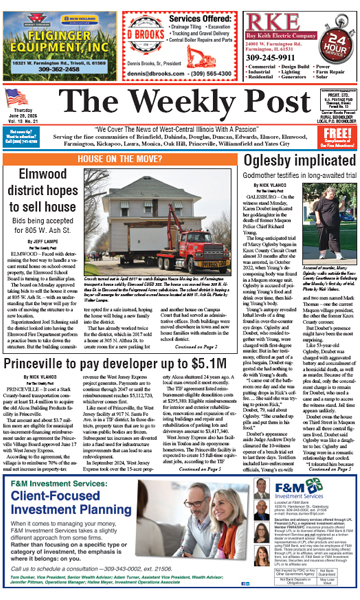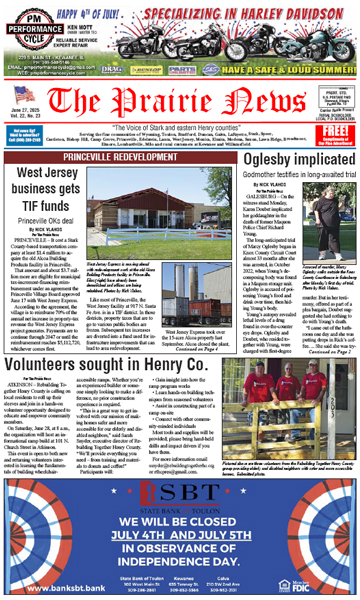By JEFF LAMPE
For The Weekly Post
WILLIAMSFIELD – Use of snow days this year and how to handle any more moving forward was one of several topics of conversation Monday at a lengthy meeting of the Williamsfield School Board.
Williamsfield has already used all scheduled emergency days are a result of inclement weather. If any more time off is required, the school will request Act of God days from the Illinois State Board of Education to guarantee May 31 as the last day of school.
But moving forward, Superintendent Tim Farquer said Billtown and sports co-op partner ROWVA are exploring the development of an e-learning plan to use in place of the Act of God days.
“Our whole goal is to be able to tell folks we will not go past May and won’t have classes in June so people can plan vacation accordingly,” Farquer said.
He said the proposed e-learning plan would be implemented only if emergency days are used.
In other business, the board discussed several items in preparation for an upcoming March 9 self-evaluation with the Illinois Association of School Boards.
Among the discussion topics was the district’s health course offerings and curriculum. Farquer said students this year are “up to speed” on demonstrating competency in health. He also said staff member Jeff Hannam will have the necessary endorsement to teach health classes next school year. At present, Farquer is the only staff member who can teach health classes.
The board also entered executive session to set dates for contract negotiations with the Williamsfield Education Association. Farquer said talks are expected to start in March.
Farquer reported the district’s fleet of electric buses is running smoothly after having completed 500 routes with just four technical disruptions, three of which were the result of a learning curve in driving the new buses. In one case, a bus had a problem with a loose wire connection and in another case, traveling down a rough, pothole-infested road triggered a crash sensor that had to be reset.
After three months, Farquer said the district is well on its way to an estimated savings of $6,500 per route versus purchasing diesel fuel.

Copyright © 2025 illinoisweeklies.com






